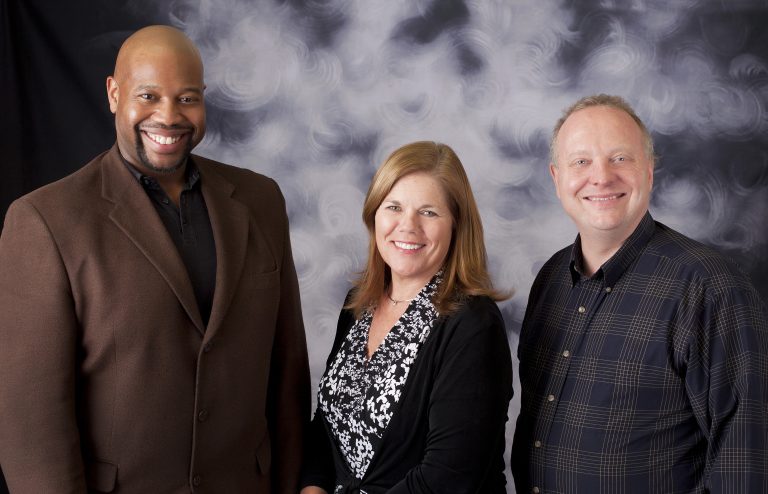Blog

By Dr. Aaron Ellington, PhD, LPCC-S, LICDC-CS
Depression can feel like being caught in a heavy fog—thoughts slow down, motivation fades, and even small daily tasks seem overwhelming. While there is no quick fix, certain skills can help cut through the fog and create moments of clarity. One effective set of tools comes from Dialectical Behavior Therapy (DBT), particularly the practice of mindfulness. Mindfulness in DBT is not about “emptying your mind” or pretending everything is fine. Instead, it’s about learning to observe your thoughts and feelings without judgment, so you can respond to them in healthier, more balanced ways. When practiced consistently, mindfulness can lessen the grip of depressive symptoms and increase your ability to engage with life.
Why Mindfulness Helps with Depression
Depression often pulls us into the past (regret, guilt, rumination) or pushes us toward the future (worry, hopelessness). Mindfulness anchors us in the present moment, making it harder for depressive thought cycles to dominate. Research shows that mindfulness can:
- Decrease rumination and overthinking
- Improve emotional regulation
- Increase self-compassion
- Create space between thoughts and reactions, allowing for healthier choices
DBT “What” Skills for Mindfulness
DBT breaks down mindfulness into “What” skills—the specific things you practice doing:
- Observe – Simply notice what’s happening inside and around you. For example, “I notice my chest feels heavy,” or “I hear the sound of rain.” You don’t need to change anything—just acknowledge it.
- Describe – Put words to your experiences. Instead of “I’m terrible,” describe what’s really happening: “I’m having the thought that I’m not good enough.” This separates you from the thought itself.
- Participate – Fully engage in the present activity. Depression often disconnects us from life. Participating—whether in a conversation, a hobby, or even washing dishes—helps bring energy and focus back to the moment.
DBT “How” Skills for Mindfulness
Alongside “What” skills, DBT teaches “How” skills, which shape how you practice mindfulness:
- Non-Judgmentally – Notice thoughts and feelings without labeling them as “good” or “bad.” For example: “I feel tired” is different from “I’m lazy.”
- One-Mindfully – Focus on one thing at a time. Depression often fragments attention. When eating, just eat. When walking, just walk. This builds presence and prevents getting overwhelmed.
- Effectively – Do what works for the situation rather than what your mood dictates. Depression might say, “Stay in bed,” but effectiveness might look like, “I’ll take a shower because it will help me feel better afterward.”
Practical Mindfulness Exercises for Depression
Here are a few simple DBT-based practices you can try:
- 5 Senses Check-In: Pause and name one thing you can see, hear, touch, smell, and taste. This grounds you in the present.
- Thought Labeling: When negative thoughts arise, notice and label them: “That’s a worry,” or “That’s a self-critical thought.” This helps create distance.
- Mindful Movement: Engage your body gently—stretching, yoga, or a slow walk. Pay attention to the sensations of movement.
- Mindful Breathing: Focus on the rhythm of your breath. When your mind wanders (and it will), gently bring it back to the breath without judgment.
Putting It All Together
Using DBT mindfulness skills doesn’t make depression vanish overnight. But by observing, describing, and participating—non-judgmentally, one-mindfully, and effectively—you can begin to loosen depression’s hold. Small moments of presence add up, and over time, mindfulness can become a reliable anchor when symptoms feel overwhelming. If you are experiencing depression, remember: you don’t have to go through it alone. These skills are most effective when paired with support from a mental health professional and, if needed, other treatments such as medication.
In Summary: DBT mindfulness is about gently training your mind to stay present. Each time you practice, you strengthen your ability to notice depressive thoughts without being consumed by them—opening space for healing and hope.
At Behavioral Health Services of Greater Cleveland, we specialize in evidence-based therapies like DBT that are tailored to your unique needs. Contact us today to schedule a consultation and explore the best options for your mental health journey. Behavioral Health Services of Greater Cleveland has two locations for in-person sessions (Rocky River and Medina), and Telehealth is available. Please call (866) 466-9591 ext. 0 for an intake.
Founded in 2008, BHSOGC has delivered professional Psychology Services to the greater Cleveland area with offices in Medina and Rocky River. We are a multi-disciplinary group practice with a clinical staff of psychologists, licensed social workers and masters level therapists.




